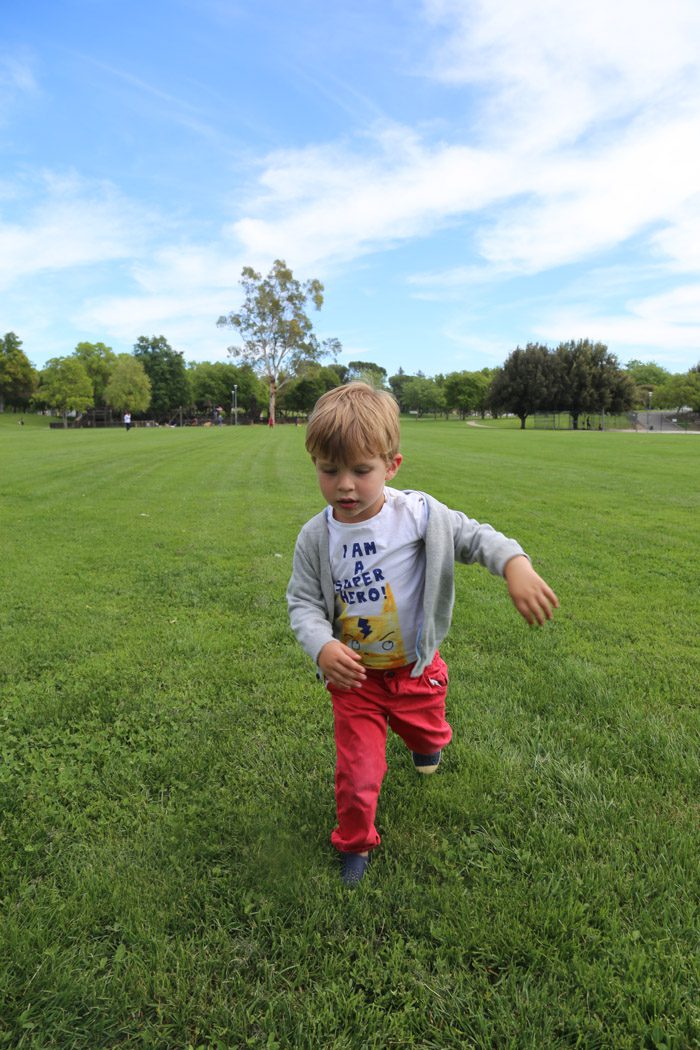
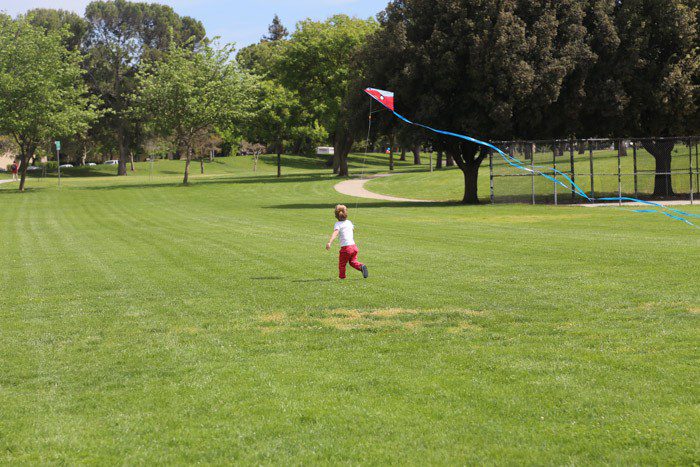
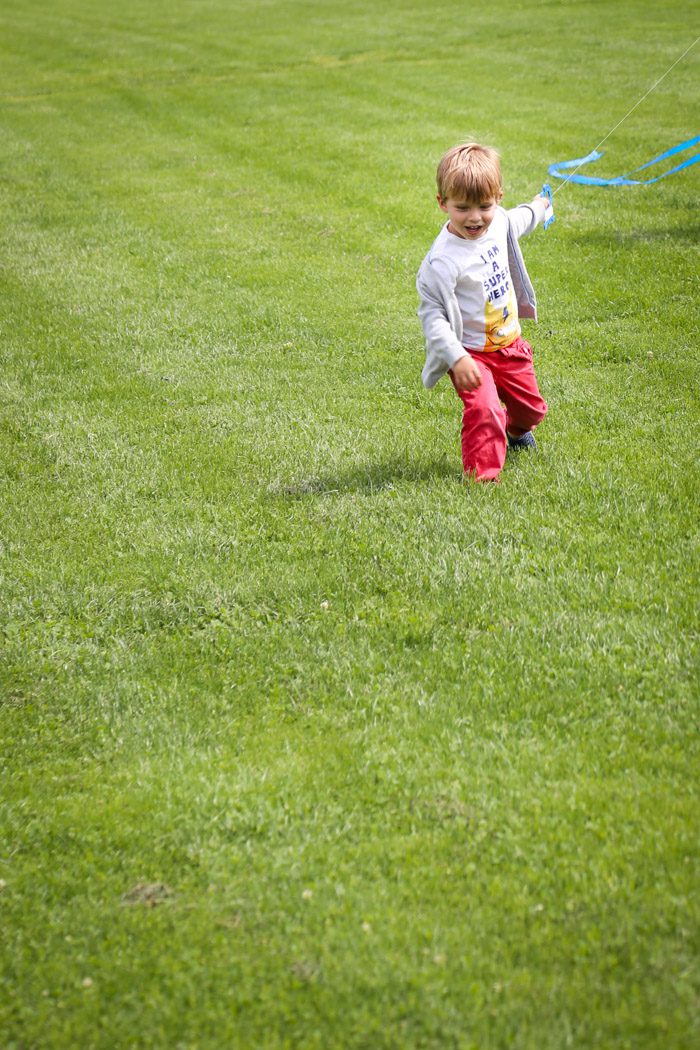
When I went to pick up Hudson from preschool one day, I set Skyler down asleep in her car seat to open my arms wide and hug him. I turned around a moment later and another little boy had practically climbed into the carseat with her and was touching her cheeks—saying she was so cute. I tried not to show my alarm, but Hudson wasn’t quite as subtle. “Don’t do that to my baby sister!” he said loudly, with a scrunched face and plenty of emphasis on each word (as if there were periods after each one). Ever since then, Hudson will occasionally ask after the little (eagerly affectionate) boy, “he a bad guy”?
I’m not sure when Hudson first learned about superheroes. It’s a recent development. Out of nowhere, it seems, he’s begun to talk about “bad guys” and “good guys.” And rescuing people. It started very vague. But it’s getting more specific: he actually ran down the hall calling “Here I come to save the day!” one afternoon. Who told him about Mighty Mouse? We didn’t think he knew any of the names of any specific superheroes—maybe Mr. Incredible from a Disney book—but we were wrong. He’s very interested in Spider-Man. He was invited to a Spider-Man birthday party last month (love this video) and there’s a superhero party on the horizon; and it seems like every day he comes home from school with a new bit of dirt on the secret lives of superheroes. (I on the other hand am constantly mixing up Superman and Spider-Man in conversation with Aron, which has led to some serious eye-rolling on his part.)

Sometimes, when Skyler cries, he’ll tell her things like “I rescue you!” (Of course then he’ll make her cry more by fake spraying firehose water on her, but the intentions were good.) “Don’t worry, there no bad guys,” or “Don’t worry, there no dragons,” he’ll say, as the case may be. And there are characters who are starting to appear (and mix) in his roll-play scenarios. “I be troll,” he’ll say. (Are you familiar with the story of the Three Billy Goats Gruff? The troll says “I’m going to eat you up!”) The troll was a source of anxiety for Hudson after he first heard about him at school, but he had us read the story to him over and over (and he tells the story and acts out the story over and over) and with repetition he has seemingly conquered that fear. What’s interesting is how often he likes to be the troll—to be the thing that scared him and gain mastery over it.
I was curious to read more about why Hudson (and every little boy around his age, it seems) is so drawn to superheroes. (I know exactly what to bring to birthday parties these days!) Their power is the obvious suggestion. Hudson really has very little power right now, and I think he’s more aware of that every day. We try to give him choices, but the power of the choice is often sort of an illusion. “Do you want to eat with your orange fork or your blue fork?” (When, shhhhh, the point is that he use a fork instead of his hands!) Aron added the point that superheroes are forces of good, and Hudson so wants to do good (even if he likes to play that he’s bad).
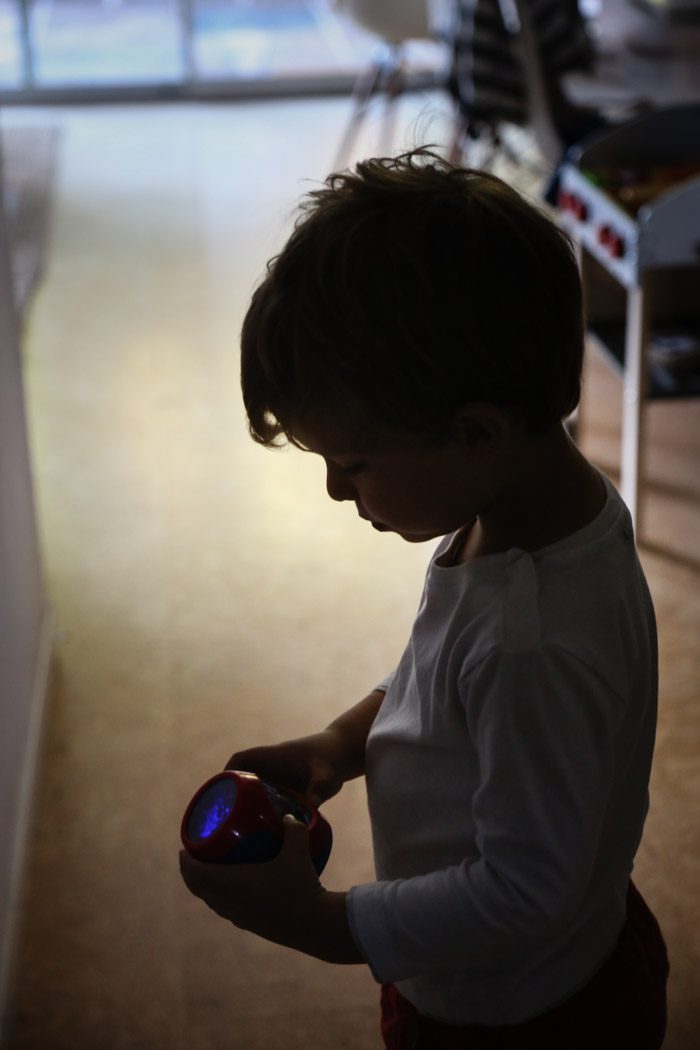
In an interview, Marvel Comics Editor-in-chief said “readers aren’t rooting for the powers or the costume—they’re rooting for the person inside the tights. With Spider-Man, they’re rooting for the kid from Queens who, when he’s not saving the world, has to scrape to make rent; with Captain America, they’re rooting for the 98-pound weakling who, through the miracle of science, was granted muscles that finally match the size of his heart.”
It made me happy to think that’s true. Hudson—while he still doesn’t really have a clue who Spider-Man is (just that he’s a superhero), let alone Peter Parker—is the person inside the tights, so to speak. I like thinking that in rooting for a superhero (and let’s face it, there are worse things than heroes who do good in school and learn from Uncle Ben that ‘with great power comes great responsibility’), he’s rooting for himself, for his character—in both senses of the word. Do you think that’s true?
There was an op-ed in the New York Times recently titled “Raising a Moral Child,” on how to raise kids to be caring (beyond any inherited tendencies, of course). It said that moral emotions (right vs wrong) really start to appear around age two, and that praise is better than reward for fostering those emotions. What was fascinating was the suggestion that, in this case, praising the character is more effective than praising the behavior (when it’s a positive one): “You are such a kind person” rather than “that was a really kind thing to do.” Aron and I had actually been focusing on doing the latter after a study talked about the benefit of praising effort rather than results. Anyway, the point is, it can apparently be valuable to not only model things like kindness and generosity, traits associated with a strong moral compass, but to tie them to one’s character—especially in young children, when a sense of identity is forming.

We’re entering the era of the superhero. I like thinking about how to embrace (and shape) the narrative—while still bringing home the fun stuff.
After all, as I tell myself, with great power comes great responsibility.
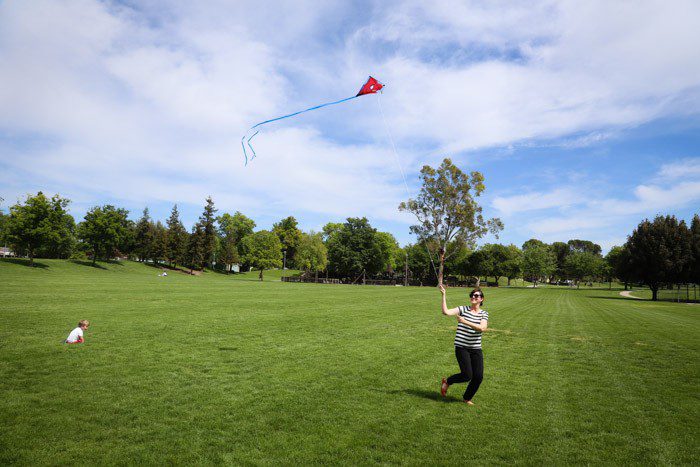

Warning: kite-flying is a workout! for a two-year old, a spirited grandpa, and for you!



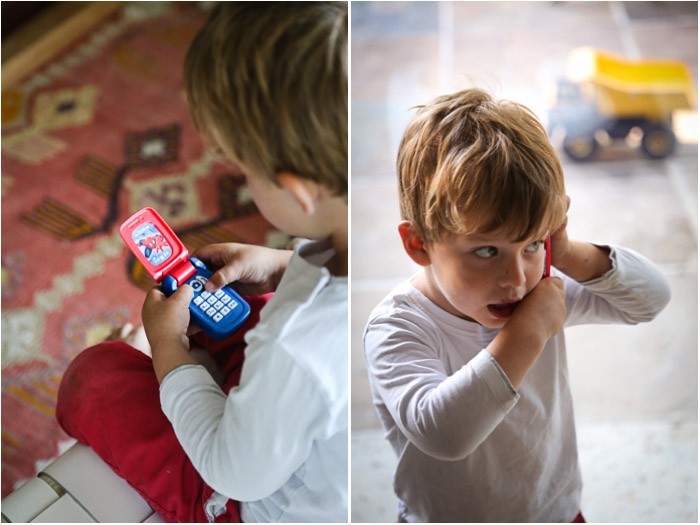
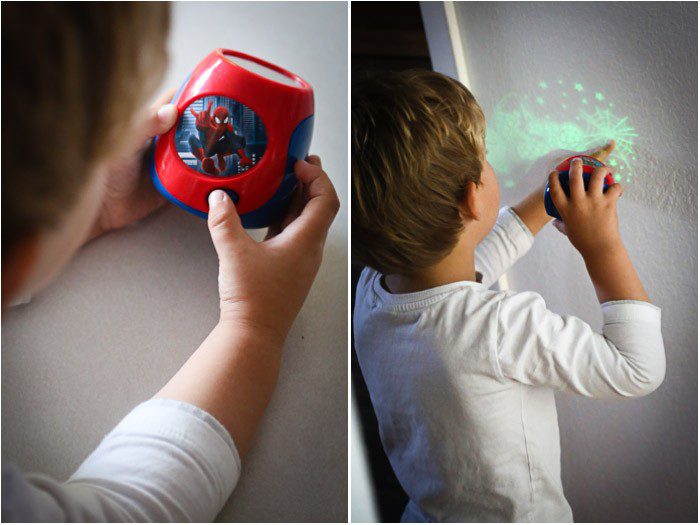
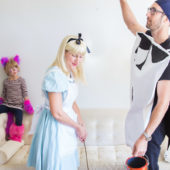








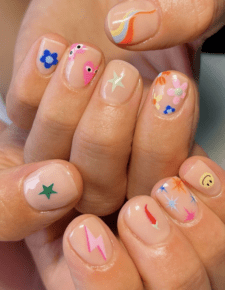

























20 Comments